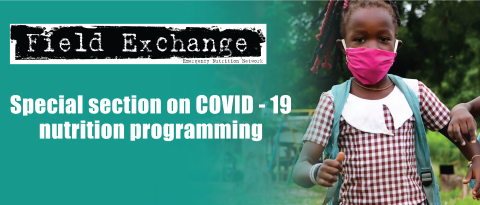Misalignment of global COVID-19 breastfeeding and newborn care guidelines with World Health Organization recommendations
Research snapshot1
Interruption of exclusive and continued breastfeeding is responsible for nearly 700,000 maternal and child deaths annually. There are concerns that the separation of mothers and newborns to reduce mother-to-infant transmission of SARS-CoV-2 in the context of the COVID-19 pandemic is negatively affecting breastfeeding practices. A strategy for preventing the spread of the virus responsible for COVID-19 is to separate those who are infected from those who are not infected. In newborns, the risk posed by virus transmission must be weighed against the protection that breastfeeding provides. The World Health Organization (WHO) issued guidance for mothers suspected or confirmed as having COVID-19 and their newborns which supported maintaining mother and infants proximate to one another and early and exclusive breastfeeding.
This study reviewed guidance documents from 33 countries to assess their alignment with the WHO recommendations and the extent to which the policy supported or undermined breastfeeding, namely (1) skin-to-skin contact, (2) early initiation of breastfeeding, (3) rooming-in, (4) direct breastfeeding, (5) provision of expressed breastmilk, (6) provision of donor human milk, (7) wet nursing, (8) provision of breastmilk substitutes, (9) psychological support for separated mothers and (10) psychological support for separated infants.
The findings showed that none of the guidance from the 33 countries recommended all aspects of the WHO guidance and most countries did not recommend keeping mothers and infants in close proximity or direct breastfeeding. Recommendations against practices supportive of breastfeeding were common, even in countries with high infant mortality rates. Decisions related to maternal and newborn proximity and breastfeeding have been based on other prominent organisations whose early guidance was based on fear of the unknown (the virus) instead of the standard practices and knowledge of past viral epidemics of the WHO.
The authors recommend that those developing guidance need to appropriately consider the importance of skin-to-skin contact, early initiation of breastfeeding, rooming-in and breastfeeding to maternal and infant physical and psychological health. The implications of these acute changes in infant feeding practices, microbiomes, overall infant morbidity and mortality, maternal health and other unforeseen changes will remain unknown for a long time. Recommendations against maternal proximity and breastfeeding should therefore not be made without compelling evidence that they are necessary and less harmful than maintaining dyad integrity.
1Vu Hoang, D, Cashin, J, Gribble, K et al. (2020) Misalignment of global COVID-19 breastfeeding and newborn care guidelines with World Health Organization recommendations. BMJ Nutrition, Prevention & Health 3(2): 339-350. doi:10.1136/bmjnph-2020-000184


